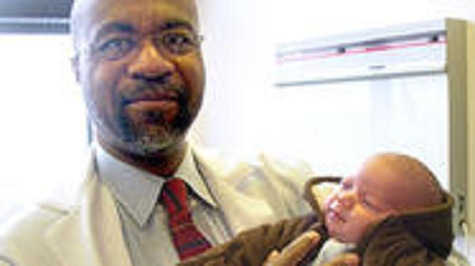Gynecologist Secretly Tapes Women: Hospital Responds
Many Baltimore-area women were stunned to learn earlier this month that they may have been secretly filmed during their obstetrician/gynecology appointments.
Dr. Nikita Levy of the prestigious Johns Hopkins Medicine was accused of “surreptitiously videotaping and photographing many of his patients.” A police spokesperson told The Washington Post that “the victim pool could be quite large.”
Levy committed suicide last week after being confronted with the evidence. According to The Post, police removed “nearly ten image-filled computer hard drives” from his home. Unsurprisingly, his patients are expressing deep concern that they may have been violated.
To its credit, Johns Hopkins Medicine appears to have handled the incident quickly upon learning about it, referring the case to the Baltimore City Police Department. They released a victim-focused statement, which reads in part:
“Any invasion of patient privacy is intolerable. Words cannot express how deeply sorry we are for every patient whose privacy may have been violated. Dr. Levy’s behavior violates Johns Hopkins code of conduct and privacy policies and is against everything for which Johns Hopkins Medicine stands. We continue to work closely with law enforcement officials and will assist them in any way possible.”
But a Johns Hopkins Medicine spokesperson named Kim Hoppe went a step further – and diminished the impact of the tone-perfect statement by telling The Washington Post:
“This is such a unique situation…Our patients are our first priority. We hope they will appreciate that we initiated this whole process. We are the ones that contacted the police. And the board is hiring an independent investigator for our own investigation.”
This is hardly the time for self-congratulations, and the second portion of her quote comes across as self-serving rather than patient focused. I understand where Ms. Hoppe is coming from, but believe a bit of wordsmithing would have allowed her to make the same point without looking as self-interested. For example, she could have said:
“This invasion of patient privacy is intolerable. We take this incredibly seriously, which is why we contacted the police the moment we learned about it – our patients rightly expect nothing less. We are going to be working on our patients’ behalf in any way we possibly can. We’ve hired an independent investigator to do an internal investigation as well, and will learn every fact we can so we can deliver answers to the women affected by this.”
Good statements put victims first. Sometimes, changing the wrapping around which you deliver information can turn a statement from being about you to being about them.
My new book, The Media Training Bible, is available from Amazon here and for the Kindle here. For other eBook formats and to read free sample lessons, click here.
h/t Dave Statter, STATter911 Blog





Great case study for the hospital leaving well enough alone. Enjoyed the post, Brad.